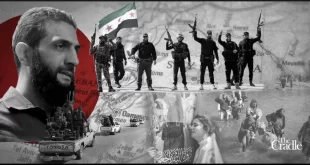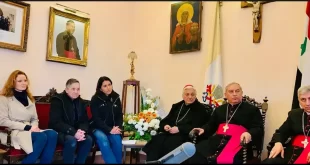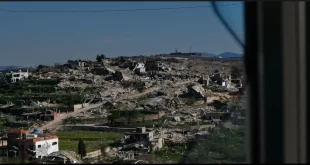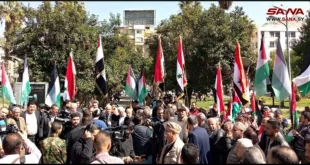Jun 4, 2015
-by Jay Tharappel
Short Answer: In 1973 the Syrian electorate voted in favour of a constitution that institutionalised the dominance of the Baath Party. This constitution remained in effect until it was replaced by a new one, which the Syrian electorate voted for on the 26th of February, 2012.
Syria’s highest elected body is the unicameral People’s Council (Majlis al Sha’ab), which is comprised of 250 seats that are divided proportionally among its 14 governorates. The President appoints their Cabinet, which consists of ministers with different responsibilities, from among the People’s Assembly.
There were major changes to Syria’s parliamentary system
According to the old constitution the Baath party led a coalition of political parties known as the ‘National Progressive Front’ (1973: Art.8), which could legally contest elections for the People’s Council, meaning that candidates from outside these parties had to run as independents.
This front was formed in 1972 and initially featured the following secular, leftist, and nationalist parties; the Syrian Communist Party, the Arab Socialist Union, the Arab Socialist Movement, and the Organisation of Socialist Unionists.
The new constitution introduced a multi-party political system in the sense that the eligibility of political parties to participate isn’t based on the discretionary permission of the Baath party or on reservations rather on a constitutional criteria.
As such, the new constitution forbids political parties that are based on religion, sect or ethnicity, or which are inherently discriminatory towards one’s gender or race (2012: Art.8) – this means the Syrian Muslim Brotherhood is still banned.
What hasn’t changed is the constitutional requirement that half the People’s Council be comprised of ‘workers and peasants’ (1973: Art.53 | 2012: Art.60), which in practice means that the ballot paper contains two lists, one with candidates who qualify as ‘workers and peasants’, and another one with other candidates.
Assuming the ‘workers and peasants’ quota isn’t filled, the next closest candidates would be prioritised for election.
There were major changes to Syria’s presidential system.
According to the old constitution the Baath party was the “leading party in society and the state” (1973: Art.8), which in practice allowed the Baath party to propose their own Presidential candidate to run in an uncontested referendum, and if this candidate, hypothetically, failed to receive a majority of votes, the People’s Council (Syria’s unicameral parliament) would have the right to propose another candidate (1973: Art.84).
In the new constitution all references to the Baath party have been removed. To qualify as a candidate, the applicant must have the support of 35 members of the People’s Council (2012: Art.85), and must have lived in Syria for the past ten years (2012: Art.84). If hypothetically only one candidate qualifies within these rules, the Speaker of the People’s Council’s must call for these qualifying procedures to be repeated.
Many of the old Presidential powers featured in the old constitution have carried over
1. The President has the right to dissolve parliament (1973: Art.107 | 2012: Art.111).
2. The President has the right to draft laws which then need to be approved by the People’s Council (1973: Art.110 | 2012: Art.112).
3. Members of the People’s Council have the right to propose bills (1973: Art.70 | 2012: Art.74) however the President has the right to veto them, until they’re able to receive at least two-thirds of the vote in the People’s Council, in which case the President must accept it as law (1973: Art.98 | 2012: Art.100).
There appears to be some changes to the structure of the Supreme Constitutional Court (SCC), which is the highest court in Syria.
According to the old constitution, the five highest governing members of the SCC include the President, and four others who are appointed by the President(1973: Art.139).
The new constitution asserts the independence of the SCC, increases the number of governing members to seven of whom the President is one, and omits the right of the President to appoint the other members (2012: Art.141).
Conclusion
The Baath party no longer enjoys constitutional privilege. Presidential elections are contested between multiple candidates, and are no longer referendums seeking the electorate’s binary (yes or no) approval for the Baath party’s internally nominated candidate.
The participation of political parties is based on an objective constitutional criteria, not on the arbitrary powers of the executive to permit or exclude them.
Finally, the Supreme Constitutional Court is significantly more independent.
 Syria Support Movement solidarity with the Syrian people
Syria Support Movement solidarity with the Syrian people




